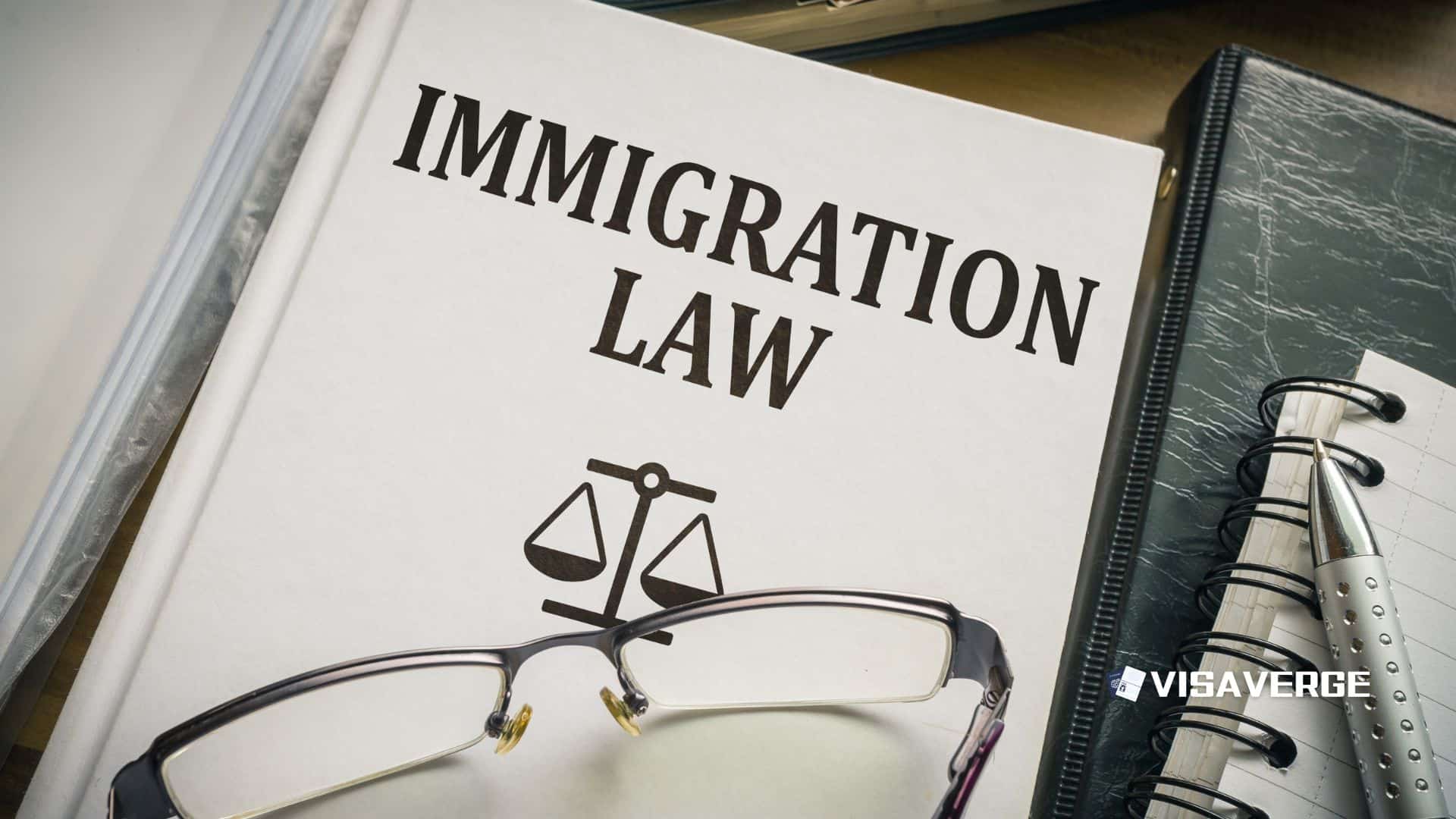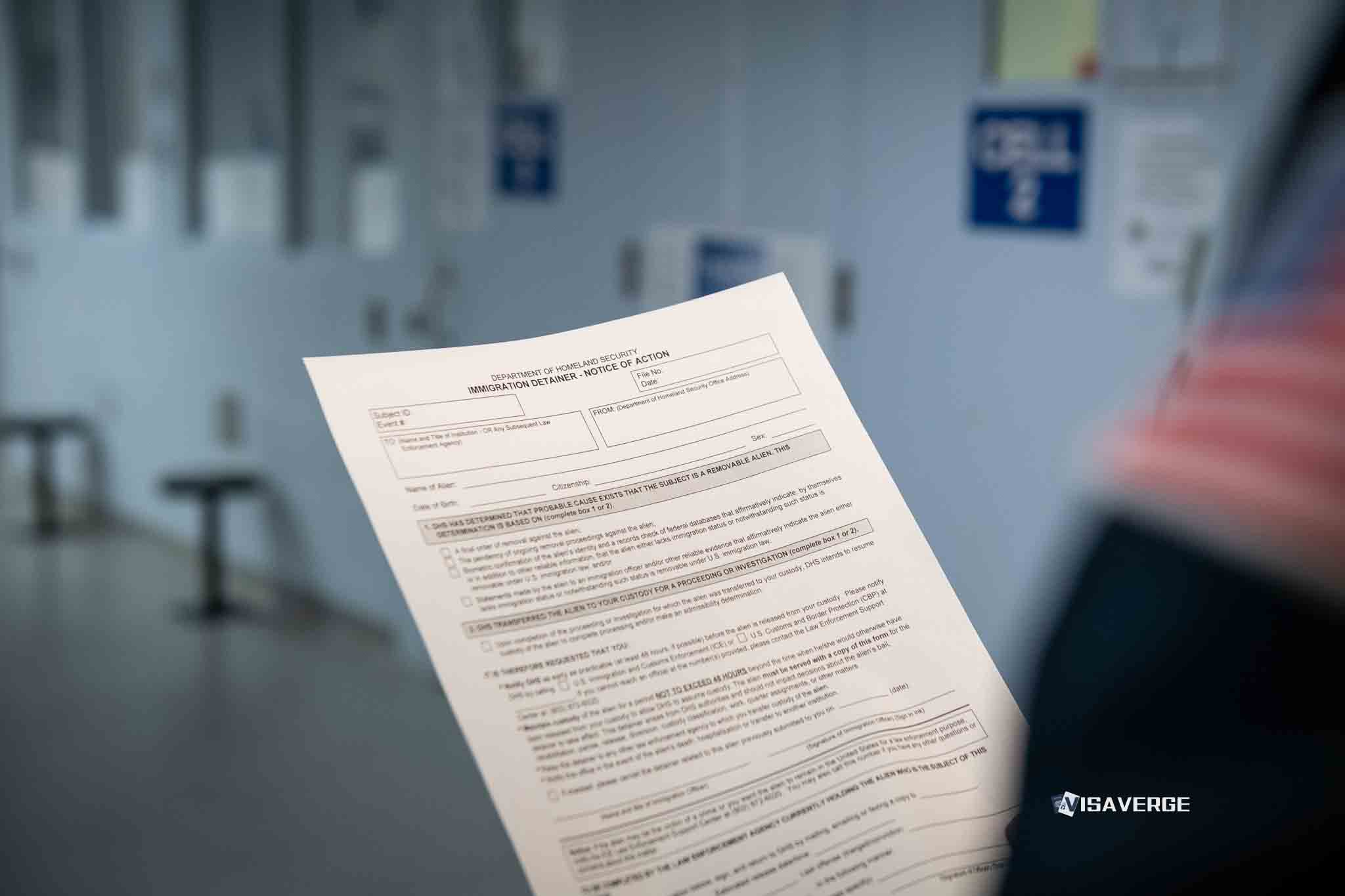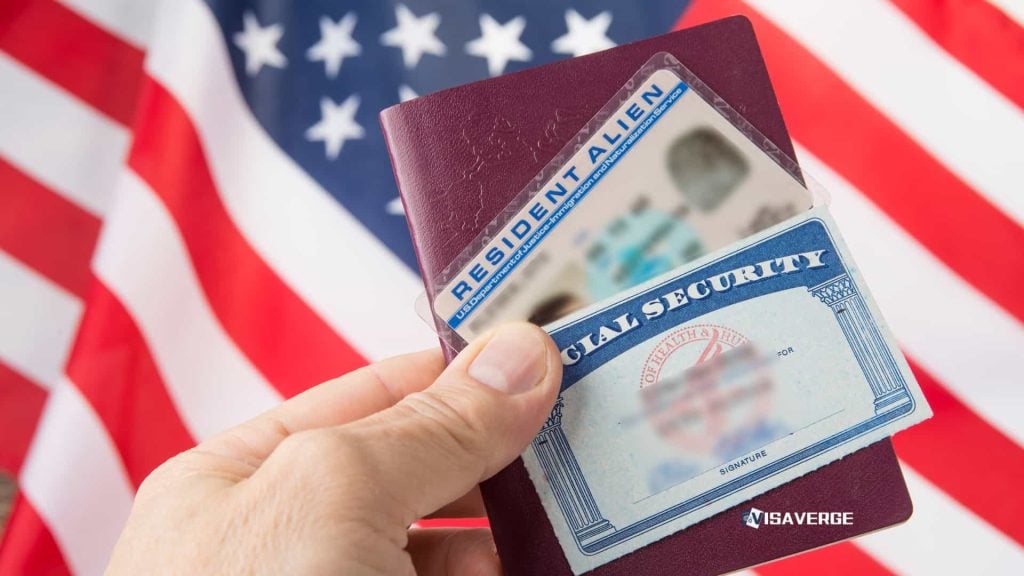Key Takeaways
• Florida’s 2025 laws increase state role in immigration enforcement with $300 million funding and mandated ICE cooperation.
• Federal control of detainee records limits public transparency, raising fears of detainees ‘disappearing’ from oversight.
• New penalties include death penalty for some offenses and loss of in-state tuition for undocumented students.
Florida’s Intensified Immigration Enforcement: An Analytical Review of Policy, Transparency, and Community Impact
Purpose and Scope

This analysis examines the recent changes in Florida’s immigration enforcement policies under Governor Ron DeSantis, focusing on the state’s deepened cooperation with federal authorities, especially U.S. Immigration and Customs Enforcement (ICE). The review covers the scope and intent of new laws, their practical effects on immigrant communities, transparency concerns, and the broader implications for public accountability and civil rights. The analysis aims to provide a clear, evidence-based understanding of how these changes affect various stakeholders, including immigrants, law enforcement, advocates, and the public.
Methodology
This report draws on official legislative records, statements from Florida officials, public meeting transcripts, and advocacy group commentary to present a comprehensive picture of the current policy landscape. Key findings are presented upfront, followed by a detailed breakdown of the laws, their enforcement mechanisms, transparency issues, and the perspectives of involved parties. Data is organized using bullet points and tables for clarity, and official sources are linked for further reference.
Key Findings
- Florida’s immigration enforcement has intensified since July 1, 2025, with new laws expanding state and local roles in identifying and detaining undocumented immigrants.
- Transparency concerns have grown due to federal control over detainee records, raising fears that individuals may “disappear” into the jail system without public oversight.
- Local law enforcement agencies are now required to cooperate with ICE, with increased funding and incentives for participation.
- Immigrant communities face heightened risks of detention, harsher penalties, and reduced access to education, creating a climate of fear and uncertainty.
- Legal and advocacy groups warn of potential human rights issues and possible legal challenges to the current system.
Data Presentation and Visual Overview
Table 1: Major Provisions of Florida’s 2025 Immigration Enforcement Laws
| Provision | Description | Effective Date |
|---|---|---|
| New State Crimes | Illegal entry criminalized; increased penalties for misdemeanors by undocumented immigrants | July 1, 2025 |
| Voting Penalties | Voting by undocumented immigrants is a third-degree felony | July 1, 2025 |
| Death Penalty | Death penalty for undocumented immigrants convicted of capital felonies | July 1, 2025 |
| Tuition Changes | End of in-state tuition for undocumented students at public colleges | July 2025 |
| Law Enforcement Funding | $300 million allocated for immigration enforcement; $1,000 bonuses for officers | July 1, 2025 |
| ICE Cooperation | Mandatory agreements between local jails and ICE; ban on sanctuary policies | Ongoing, reinforced 2025 |
Visual Description:
A table summarizes the main changes in Florida’s immigration laws, showing each provision, what it does, and when it takes effect. This helps readers quickly see the scope and timing of the new rules.
Comparisons, Trends, and Patterns
Historical Context and Escalation
Florida’s approach to immigration enforcement has shifted dramatically over the past several years. The state first banned sanctuary policies in 2022, requiring local agencies to work with federal immigration authorities. The 2025 laws, signed by Governor Ron DeSantis, represent a significant escalation:
- Alignment with Federal Priorities: The new laws closely mirror federal enforcement priorities under President Trump, who resumed office in January 2025.
- Expansion of State Role: Florida now plays a much larger part in identifying, detaining, and penalizing undocumented immigrants, moving beyond previous levels of cooperation.
- Increased Funding and Incentives: The state has committed $300 million to support law enforcement’s role in immigration operations, including bonuses for officers.
Transparency and Accountability: The “Disappearing” Detainee Problem
One of the most significant concerns raised by advocates and legal experts is the issue of transparency. Under the new agreements, all records related to detainees held in local jails under ICE cooperation are classified as federal records. This means:
- ICE controls what information is released to the public, including whether a person is in custody.
- Local agencies are limited in what they can share, even if state public record laws would normally require disclosure.
- Families, advocates, and journalists may be unable to confirm the location or status of detainees, leading to fears that people could “disappear” into the jail system without accountability.
Case Study: Miami-Dade County
At a Miami-Dade County commission meeting in June 2025, officials stated their commitment to transparency and following state public record laws. However, the ICE agreement’s federal records clause overrides local transparency efforts. William Mann, an attorney with the Community Justice Project, explained that this arrangement could prevent families from finding out where their loved ones are being held, making it difficult to provide legal help or support.
Practical Implications for Immigrants and Communities
1. Increased Risk of Detention Without Oversight
- Federal control over records means that detainees may be held without their families or advocates knowing where they are or what charges they face.
- Local law enforcement officers, some without specialized immigration training, are now empowered and incentivized to enforce immigration laws, increasing the risk of wrongful or excessive detentions.
2. Harsher Penalties and Reduced Opportunities
- Undocumented immigrants face new state crimes and tougher penalties, including the possibility of the death penalty for capital felonies.
- Voting by undocumented immigrants is now a felony, adding another layer of legal risk.
- Undocumented students lose access to in-state tuition, making higher education less accessible and affordable.
3. Community Impact
- Fear and Uncertainty: The combination of stricter enforcement, harsher penalties, and reduced educational benefits has created a climate of fear among immigrant communities in Florida.
- Chilling Effect: Some immigrants may avoid interacting with law enforcement or public institutions, even when they need help, out of fear of detention or deportation.
Stakeholder Perspectives
Governor Ron DeSantis
Governor DeSantis has positioned Florida as a national leader in immigration enforcement, arguing that these measures are necessary to combat illegal immigration and support federal mandates. He has emphasized the importance of state-federal cooperation and has directed significant resources toward these efforts.
Local Law Enforcement
Local agencies have received increased funding and bonuses to participate in immigration enforcement. While some officers welcome the additional resources, others face challenges balancing their enforcement duties with maintaining trust and transparency in their communities.
Immigrant Rights Advocates and Legal Experts
Advocacy groups and legal experts have expressed deep concern about the lack of transparency and the risk of human rights violations. They warn that the current system could lead to people being detained without public oversight, making it difficult for families to locate or assist their loved ones.
ICE
ICE maintains control over detainee records under agreements with Florida counties but has not publicly addressed concerns about transparency or public access to information.
Comparative Analysis: Florida vs. Other States
Florida’s approach stands out for its aggressive enforcement and close alignment with federal priorities. While other states have also increased cooperation with ICE, Florida’s laws go further by:
- Criminalizing illegal entry at the state level
- Imposing the death penalty for certain offenses
- Ending in-state tuition for undocumented students
- Providing large financial incentives for law enforcement participation
This approach contrasts with states that have adopted sanctuary policies or limited cooperation with federal immigration authorities.
Evidence-Based Conclusions
The expansion of Florida’s immigration enforcement under Governor Ron DeSantis has led to:
- Greater state involvement in federal immigration operations
- Increased risk of detention without public oversight due to federal control of records
- Harsher penalties and reduced opportunities for undocumented immigrants
- A climate of fear and uncertainty in immigrant communities
While the state argues that these measures are necessary for public safety and law enforcement, critics warn of potential human rights violations and the erosion of public accountability.
Limitations of the Analysis
- Lack of Public Data: ICE has not released detailed information about detainee records or the number of people affected by the new policies.
- Evolving Legal Landscape: Ongoing legal challenges or future legislative changes could alter the enforcement and transparency provisions.
- Limited Stakeholder Input: ICE has not responded to public inquiries, and some local agencies have not provided detailed data on enforcement actions.
Official Resources and Further Reading
For readers seeking more information on immigration enforcement policies and detainee rights, the following official resources are recommended:
- U.S. Immigration and Customs Enforcement (ICE) – Detention Management
- Miami-Dade County Commission
- Florida Governor’s Office
Practical Guidance and Next Steps
- For Immigrants and Families:
If you or a loved one is detained, contact local legal advocacy groups such as the Community Justice Project for assistance. Be aware that information about detainees may be limited due to federal control of records. -
For Advocates and Journalists:
Monitor local commission meetings and public records requests, but understand that ICE agreements may restrict access to information. Consider working with legal experts to challenge or clarify transparency provisions. -
For Law Enforcement and Policymakers:
Balance the need for public safety with the importance of community trust and transparency. Engage with community groups to address concerns and provide clear information about enforcement practices.
Conclusion
Florida’s intensified cooperation with federal immigration enforcement under Governor Ron DeSantis marks a significant shift in the state’s approach to immigration. The new laws have expanded the state’s role, increased penalties, and created new challenges around transparency and public accountability. As reported by VisaVerge.com, these changes have sparked fears among immigrant communities and advocates that detainees may “disappear” into the jail system without oversight. The situation remains dynamic, with ongoing debates about the balance between enforcement, transparency, and civil rights. Stakeholders should stay informed about legal developments and seek support from official and advocacy resources as needed.
For the latest updates and official information on immigration enforcement, visit the U.S. Immigration and Customs Enforcement (ICE) Detention Management page.
Learn Today
ICE → U.S. Immigration and Customs Enforcement, the federal agency enforcing immigration laws and detaining undocumented immigrants.
Sanctuary Policies → Local rules limiting cooperation with federal immigration authorities to protect undocumented immigrants.
Detainee Records → Official documents detailing information about individuals held in custody by immigration authorities.
Capital Felony → A severe crime punishable by death penalty under state law.
In-State Tuition → Reduced college tuition rates available to residents of a state, withheld from undocumented students in Florida.
This Article in a Nutshell
Florida’s intensified immigration enforcement expands state authority and funding, mandates ICE cooperation, and restricts transparency, creating fear among immigrant communities and raising human rights concerns across the state’s immigrant population and advocacy groups.
— By VisaVerge.com













